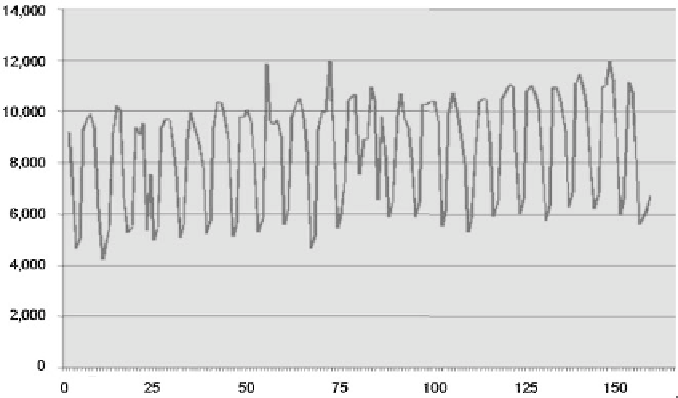Information Technology Reference
In-Depth Information
a user is only interested in a list of diplomatic meetings. The query can be refined
as
“Bush >meet > [person/name].”
In this case, the addition of an ontology tag
restricts the number of meetings to those that are likely to involve named political
personalities of some relevance. If the user is primarily interested in meeting that
involve talks on nuclear arms control, the query can be further refined as
“Bush >
meet > [person/name] ∼ nuclear arms control.”
Similarly, the query
“[country] >
produce > uranium”
can be turned into the query
“[country] > produce >[numeric]
uranium”
if a user is after quantities of uranium that are being produced around
the world. In general, we observe that users accustomed to keyword search believe
that specifying more terms translates into more accurate results. In moving these
users to Fact Search we must encourage them to start as simple as possible, since
the IQL can express in two words what would take 20 lines using Boolean language.
Fig. 5.11.
Queries/day vs day of operation (June 22, 2005, to November 30, 2005).
Finally, Figure 5.11 shows overall query volumes (keyword search and Fact
Search) as a function of day from the first day of operation (June 22 to Novem-
ber 30, 2005). The cyclic nature of the graph derives from the fact that most user
access the site during the working week. Figure 5.12, which displays query volumes
vs week of operation, clearly shows a positive trend: overall tra
c to the site has
increased by almost 40% ever since we introduced InFact search. The most inter-
esting metrics relate to the percentage of users that derive value from Fact Search.
The most effective mechanism to promote natural language search, as we have seen,
are the tips. Figure 5.13 shows a 60% increase in the number of users that click on
the tips automatically generated by InFact's advanced linguistic analysis over our
entire period of operation. The overall percentage has increased from 4% to 10%.
Our analysis also suggests that the best way to teach users how to write good queries
is to first expose them to the summary result displays that ensues from a natural
language query. The sooner users become aware of the type of results that a natural

Search WWH ::

Custom Search